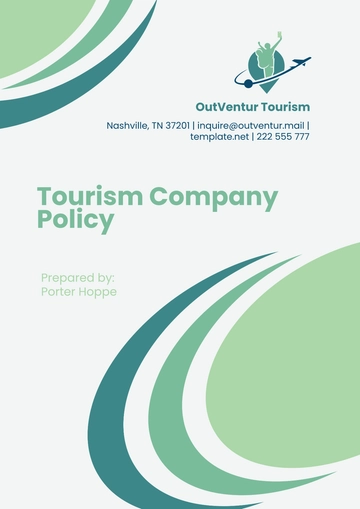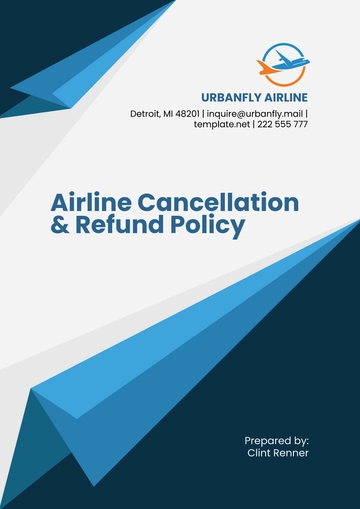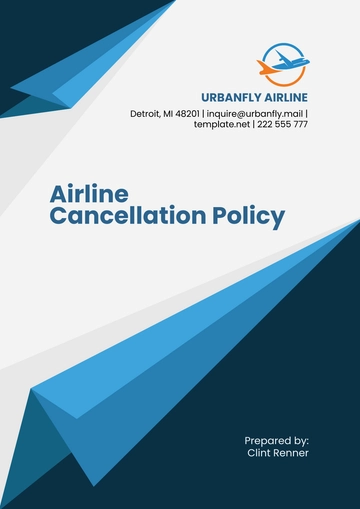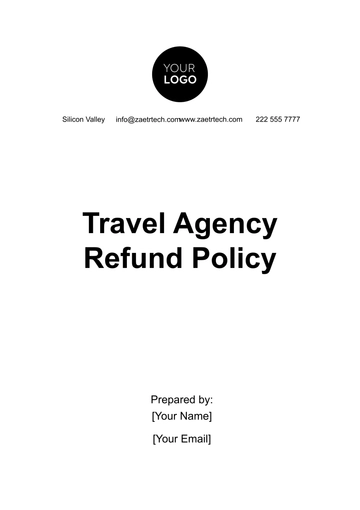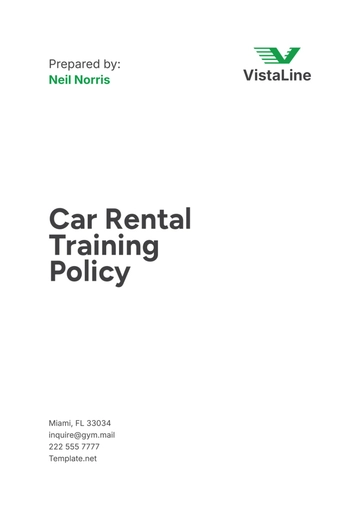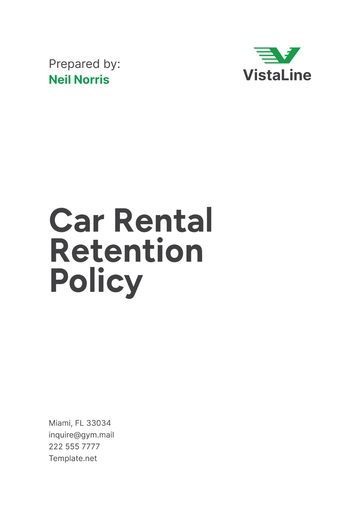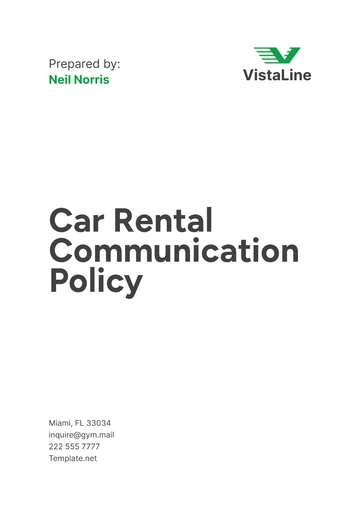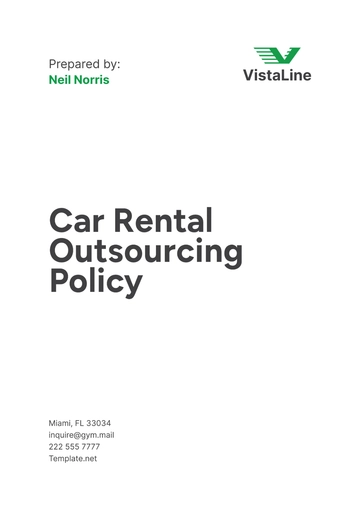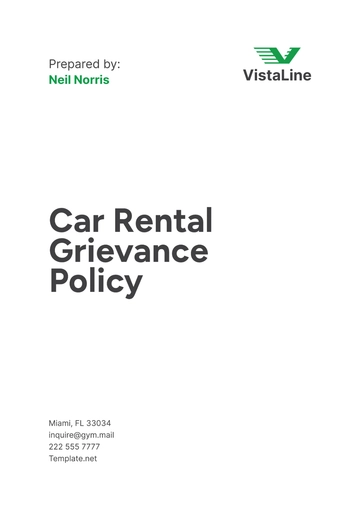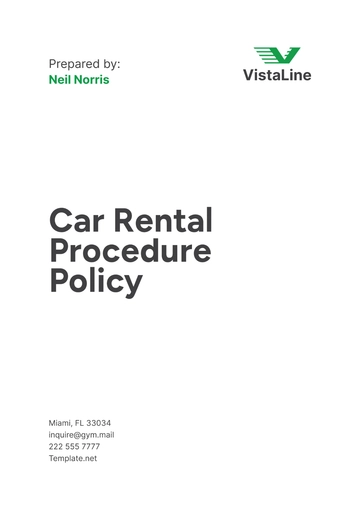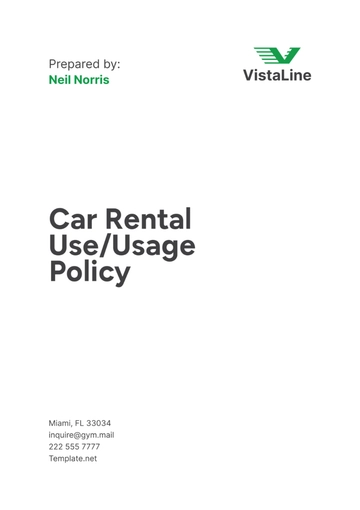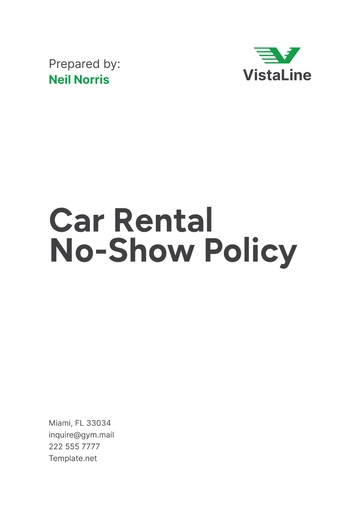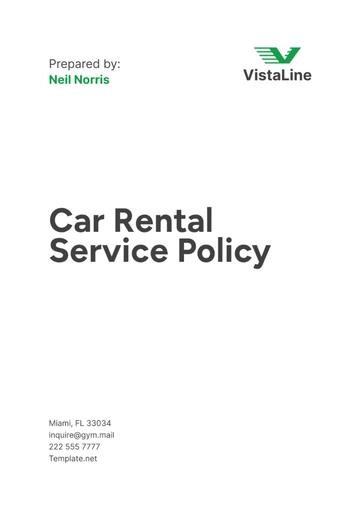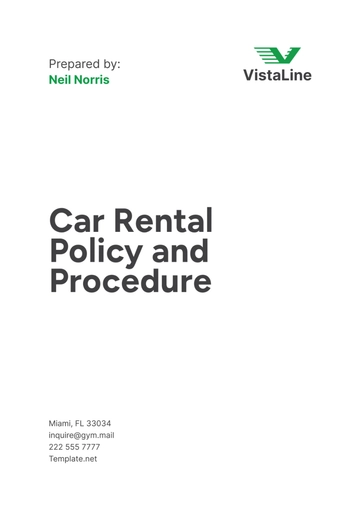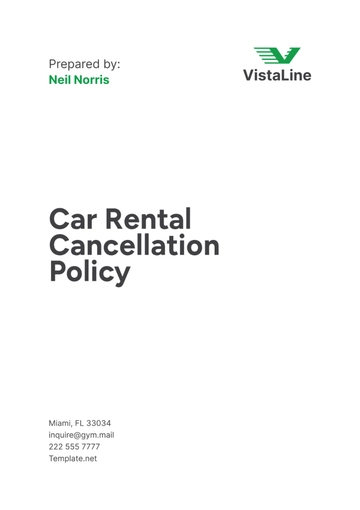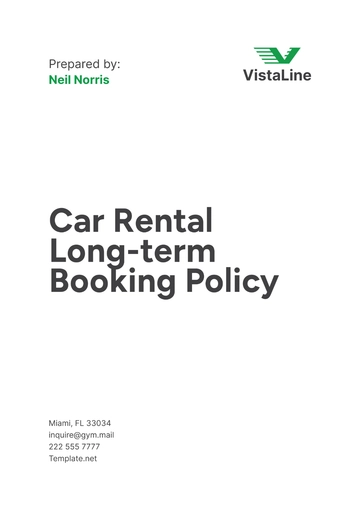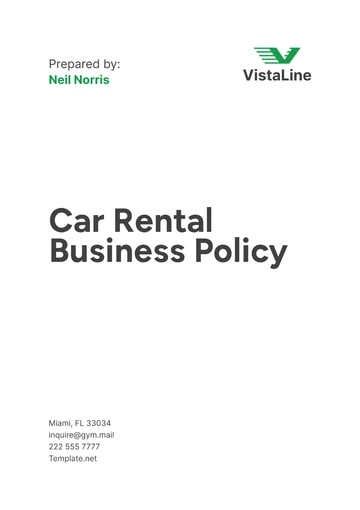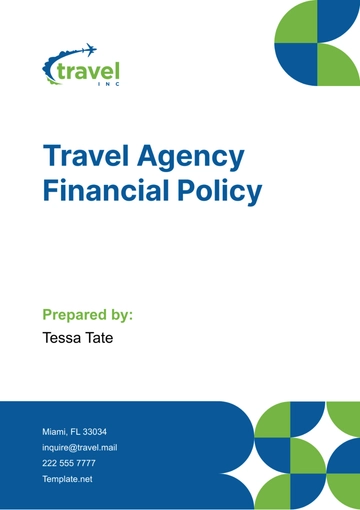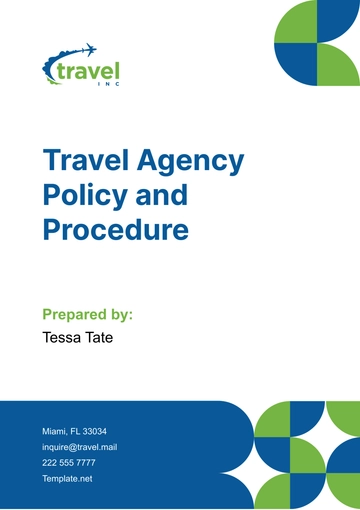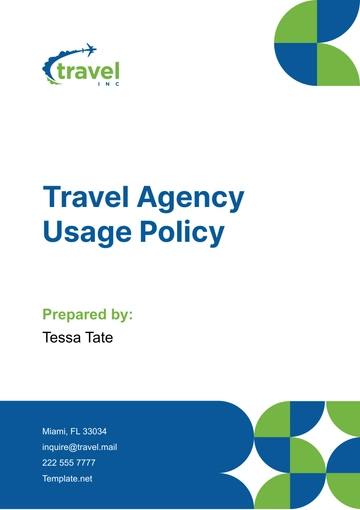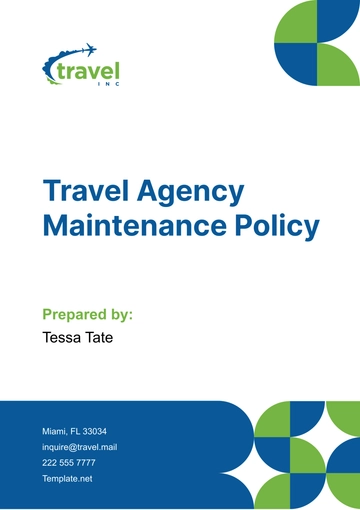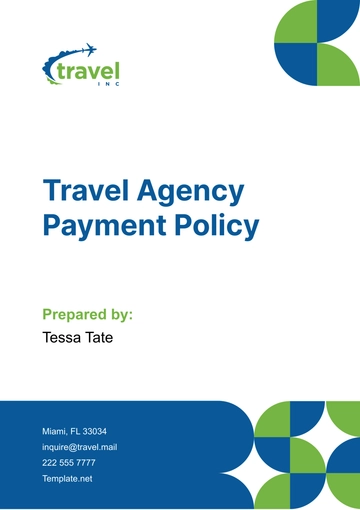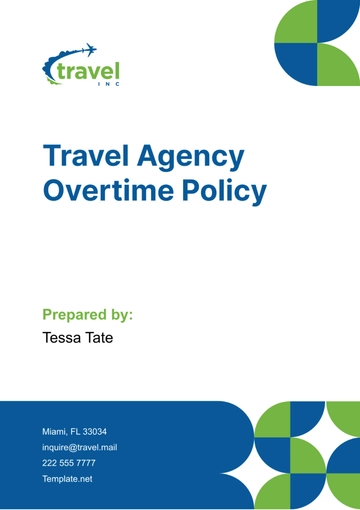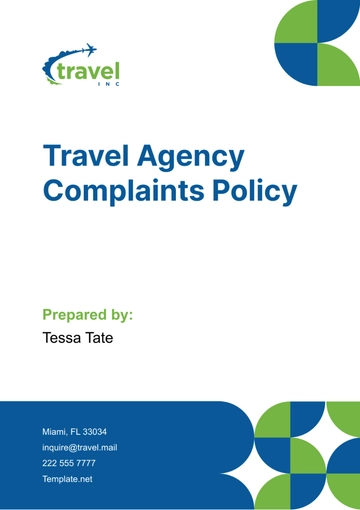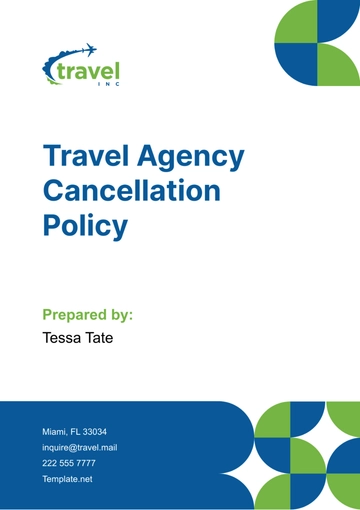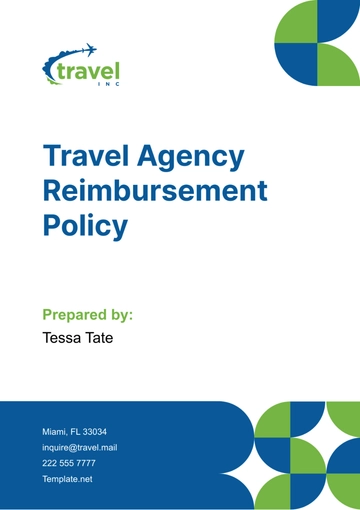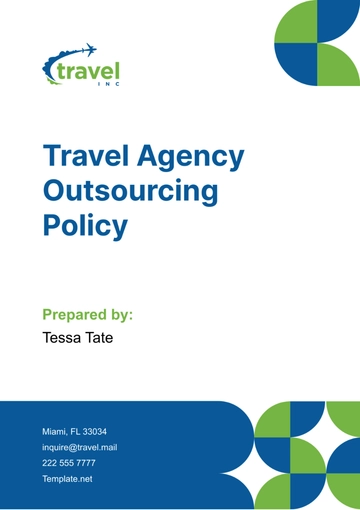Free Travel Agency Leave Policy
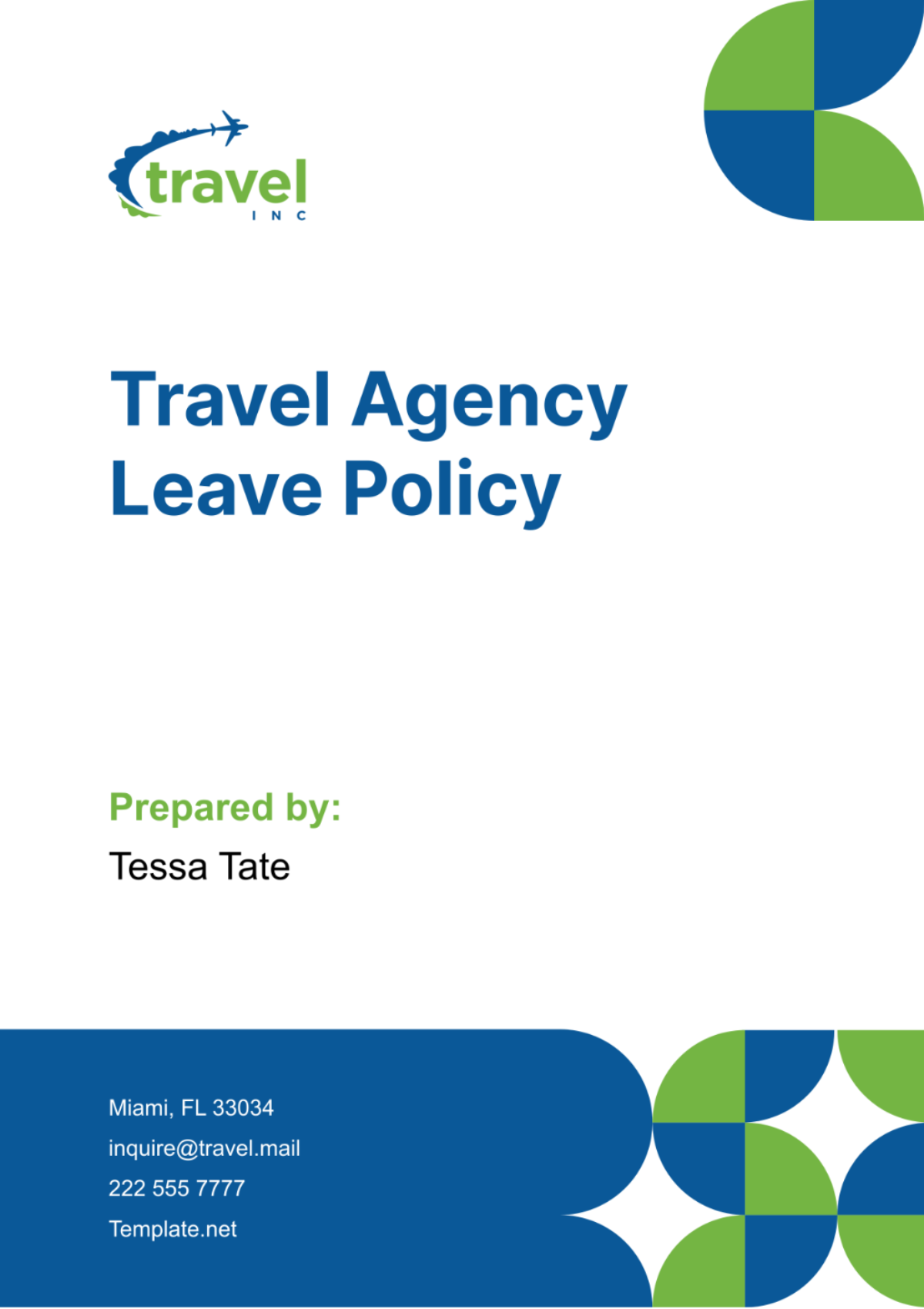
I. Introduction
A. Purpose of the Policy
The Travel Agency Leave Policy is designed to provide clear guidelines and procedures for employees regarding the various types of leave available to them. It aims to ensure consistency, fairness, and transparency in leave management while balancing the needs of employees with the operational requirements of the agency.
B. Scope and Applicability
This policy applies to all employees of the travel agency, including full-time, part-time, and temporary staff. It covers all aspects of leave management, including accrual rates, entitlement, request procedures, and return-to-work requirements.
C. Compliance with Legal Requirements
The travel agency is committed to complying with all applicable federal, state, and local laws and regulations governing employee leave, including the Family and Medical Leave Act (FMLA), the Americans with Disabilities Act (ADA), and any state-specific leave laws. Compliance ensures that employees' rights are protected and that the agency operates within the bounds of the law.
II. Types of Leave
A. Vacation Leave
Vacation leave is provided to employees for rest, relaxation, and personal pursuits. Accrual rates are based on the employee's length of service, with longer-tenured employees accruing leave at a higher rate. Employees are encouraged to plan and schedule vacation leave in advance, subject to approval by their supervisor or manager.
B. Sick Leave
Sick leave allows employees to take time off from work due to personal illness, injury, or medical appointments. Employees must notify their supervisor as soon as possible when taking sick leave and provide any necessary documentation, such as a doctor's note, for extended absences. Unused sick leave may be carried over to the next leave year, subject to maximum accrual limits.
C. Personal Leave
Personal leave may be used for reasons not covered by vacation or sick leave, such as attending to personal appointments, family obligations, or religious observances. Employees are required to request personal leave in advance and provide a reason for the request. The approval of personal leave is subject to supervisor discretion and business needs.
D. Bereavement Leave
Bereavement leave is granted to employees in the event of the death of an immediate family member, such as a spouse, child, parent, or sibling. The duration of bereavement leave is typically [00] of days, with additional time granted for travel if necessary. Employees may be required to provide documentation, such as a death certificate or obituary, to support their bereavement leave request.
E. Jury Duty Leave
Employees summoned for jury duty are entitled to time off from work without loss of pay. They must promptly inform their supervisor upon receiving a jury duty summons and provide a copy of the summons for documentation purposes. The travel agency encourages employees to fulfill their civic duty and may require proof of attendance from the court upon completion of jury duty.
F. Military Leave
Military leave is provided to employees who are called to active duty or training with the military. Employees are required to provide advance notice to their supervisor of their military service obligations, along with documentation from their commanding officer or military unit. The travel agency complies with all applicable laws regarding military leave rights and benefits, including reemployment rights upon return from military service.
G. Parental Leave (Maternity/Paternity)
Parental leave is available to employees welcoming a new child through birth, adoption, or foster care placement. Eligible employees may take parental leave for bonding with the new child, and the duration of leave is specified in the policy. Employees are encouraged to discuss their parental leave plans with HR in advance to ensure a smooth transition and to explore available benefits, such as paid parental leave or FMLA coverage.
H. Other Leave Categories
Other types of leave, such as educational leave or sabbatical leave, may be available under certain circumstances. Employees interested in pursuing these leave options should consult with HR to discuss eligibility criteria, duration of leave, and any potential impact on employment status and benefits. The travel agency evaluates requests for other leave categories on a case-by-case basis, considering factors such as business needs and the employee's performance record.
III. Accrual and Entitlement
A. Accrual Rates
Vacation and sick leave accrue based on the employee's length of service with the travel agency. Accrual rates increase with tenure to reward long-term employees for their dedication and commitment. Employees accrue leave hours bi-weekly or monthly, depending on the agency's payroll schedule, and accrual calculations are outlined in the employee handbook.
B. Maximum Accrual Limits
To ensure leave management efficiency and prevent excessive accruals, employees are subject to maximum accrual limits for vacation and sick leave. Once an employee reaches the maximum accrual limit, further accruals cease until leave is utilized, allowing employees to continue accruing leave hours in subsequent leave years.
C. Initial Entitlement
New employees become eligible for vacation and sick leave benefits after completing the probationary period, typically [00] days or [00] months from the date of hire. The initial entitlement is prorated based on the employee's start date within the leave year, ensuring fair allocation of leave hours for new hires.
D. Leave Year/Anniversary Dates
The leave year begins on [Date] and ends on [Date] each year, aligning with the agency's fiscal calendar. Employee anniversary dates for leave accrual purposes are determined based on the employee's hire date, allowing for consistent tracking of accruals and entitlements throughout the year.
IV. Requesting Leave
A. Notification Procedures
Employees are required to notify their supervisor or manager of their intention to take leave as soon as practicable. Notification should include the type of leave requested, the dates of absence, and any relevant details or documentation. In cases of unexpected absence, employees should notify their supervisor as soon as possible, preferably before the start of the workday.
B. Advance Notice Requirements
To facilitate adequate planning and scheduling, employees are encouraged to request leave with as much advance notice as possible. Advance notice requirements vary depending on the type and duration of leave but typically range from [00] days to [00] weeks. Employees should refer to the policy for specific advance notice guidelines for each type of leave.
C. Required Documentation
Certain types of leave may require documentation to support the leave request, such as a doctor's note for sick leave or a jury duty summons for jury duty leave. Employees are responsible for providing any necessary documentation promptly to their supervisor or HR department. Failure to provide required documentation may result in the denial of the leave request.
D. Leave Request Forms
The travel agency provides standardized leave request forms for employees to use when requesting leave. The form includes fields for employees to indicate the type of leave requested, the dates of absence, and any additional comments or explanations. Employees should submit the completed form to their supervisor or HR department for review and approval.
V. Approval Process
A. Authority for Approving Leave
Supervisors or managers are responsible for reviewing and approving employee leave requests within their respective departments. They have the authority to grant or deny leave requests based on business needs, staffing requirements, and the availability of accrued leave hours.
B. Factors Considered in Approval
Supervisors consider various factors when evaluating leave requests, including the employee's work schedule, departmental workload, staffing levels, and the timing of the request. They strive to balance the needs of the employee with the operational needs of the agency while ensuring equitable treatment for all employees.
C. Communication of Approval/Denial
Supervisors communicate their decision on leave requests to employees in a timely manner, typically within [00] business days of receiving the request. Employees will be notified whether their leave request has been approved, denied, or requires further clarification. Supervisors provide reasons for denial, if applicable, and may work with employees to explore alternative solutions.
D. Escalation Procedures for Disputes
Employees who disagree with the outcome of their leave request may follow the agency's escalation procedures for disputes. This may involve discussing the matter with their supervisor, HR representative, or higher-level management to seek resolution. The travel agency is committed to addressing leave-related disputes promptly and fairly to ensure employee satisfaction and compliance with policy guidelines.
VI. Leave Scheduling
A. Coordination with Management/Supervisors
Employees are encouraged to coordinate leave requests with their supervisors or managers to ensure adequate coverage and minimize disruptions to workflow. Supervisors may implement scheduling protocols to manage leave requests effectively, such as establishing blackout dates during peak business periods.
B. Managing Conflicts and Overlapping Requests
In cases where multiple employees request leave during the same period, supervisors prioritize leave requests based on business needs, seniority, and the order of submission. Every effort is made to accommodate employees' preferred leave dates while maintaining operational efficiency and fairness.
C. Peak Periods and Blackout Dates
Certain periods of the year, such as holidays, peak travel seasons, or special events, may be designated as blackout dates during which leave requests may be restricted or subject to additional scrutiny. Supervisors communicate blackout dates to employees well in advance to allow for adequate planning and scheduling.
VII. Paid vs. Unpaid Leave
A. Paid Leave Eligibility
Eligible employees may use accrued vacation or sick leave for paid time off, subject to availability and approval. Paid leave provides employees with financial security while taking time off for personal or medical reasons, promoting work-life balance and employee well-being.
B. Use of Accrued Leave
Employees are encouraged to use accrued leave hours responsibly and in accordance with policy guidelines. Accrued leave may be used in increments as small as [00] hours, with employees tracking their leave balances through the agency's timekeeping system or designated HR portal.
C. Unpaid Leave Options
In situations where employees exhaust their accrued leave balances or require additional time off beyond what is available, they may request unpaid leave subject to supervisor approval. Unpaid leave may be granted for extended medical leaves, personal reasons, or other qualifying circumstances as outlined in the policy.
D. Impact on Benefits
The use of paid or unpaid leave may have implications for employee benefits such as health insurance, retirement contributions, and accrual of leave hours during the absence period. Employees should consult with HR to understand the impact of leave on their benefits and to explore available options for maintaining coverage during leave periods.
VIII. Special Circumstances
A. Maternity/Paternity Leave
Employees welcoming a new child through birth, adoption, or foster care placement are eligible for maternity or paternity leave. Maternity leave typically extends for [00] weeks, while paternity leave may be [00] days. Employees should consult with HR to understand eligibility criteria, duration of leave, and available benefits.
B. Disability and Medical Leave
Employees experiencing a serious health condition or disability may be eligible for medical leave under the FMLA or other applicable laws. Medical leave allows employees to take time off for their own medical treatment or to care for a family member with a serious health condition. Documentation from a healthcare provider may be required to support medical leave requests.
C. Jury Duty and Court Appearance
Employees summoned for jury duty or required to appear in court as a witness are entitled to time off from work without loss of pay. The travel agency supports employees' civic responsibilities and requires them to provide documentation of their jury duty summons or court appearance notice for record-keeping purposes.
D. Military Service Leave
Employees called to active duty or training with the military are entitled to military service leave in accordance with the Uniformed Services Employment and Reemployment Rights Act (USERRA). Military leave allows employees to fulfill their military obligations while maintaining their employment rights and benefits with the travel agency.
E. Educational Leave
Employees may request educational leave to pursue further education or professional development opportunities related to their job responsibilities. Educational leave may be granted for short-term courses, workshops, or degree programs, subject to supervisor approval and business needs. Employees are encouraged to discuss their educational goals with HR to explore available options and support.
F. Sabbatical Leave
Sabbatical leave may be granted to eligible employees for an extended period of time away from work for personal or professional reasons, such as travel, research, or self-improvement. Sabbatical leave is typically unpaid and requires approval from senior management or the HR department. Employees must submit a formal request outlining the purpose and duration of their sabbatical leave and any proposed arrangements for workload coverage.
IX. Return-to-Work Requirements
A. Notification of Return
Employees on leave are required to notify their supervisor of their intended return-to-work date in advance to facilitate planning and scheduling. Employees returning from extended medical leave may be required to provide a fitness-for-duty certification from a healthcare provider confirming their ability to resume work duties.
B. Fitness for Duty Requirements
Employees returning from medical leave or disability may be subject to fitness-for-duty evaluations to ensure they are physically and mentally capable of performing their job duties. The travel agency prioritizes employee safety and well-being and may require additional accommodations or adjustments to support employees' successful return to work.
C. Documentation of Extended Absences
Employees returning from extended leave, such as medical or military leave, may be required to provide documentation of their absence, including medical records, military orders, or other relevant documentation. This information is used for record-keeping purposes and to ensure compliance with leave policies and applicable laws.
D. Reintegration Process
The travel agency recognizes the importance of supporting employees' successful reintegration into the workplace after an extended absence. Supervisors and HR may conduct re-entry interviews or orientation sessions to help employees transition back to work smoothly and address any concerns or questions they may have.
X. Leave of Absence
A. Requesting a Formal Leave of Absence
Employees requiring an extended period of time off beyond what is covered by standard leave policies may request a formal leave of absence. A formal leave of absence allows employees to maintain their employment status while taking time off for personal, medical, or other qualifying reasons.
B. Conditions for Approval
Approval of a leave of absence is subject to supervisor or management approval and is based on the employee's specific circumstances, business needs, and operational feasibility. Employees must submit a formal written request for a leave of absence, including the reason for the request and the expected duration of the absence.
C. Duration of Leave
The duration of a leave of absence varies depending on the employee's needs and the circumstances surrounding the request. Leaves of absence may be granted for a specified period, such as [00] weeks or months, with the possibility of extension under certain circumstances.
D. Effect on Employment Status and Benefits
Employees on an approved leave of absence maintain their employment status with the travel agency, although their compensation may be affected depending on the type of leave and any applicable laws or policies. Benefits continuation during a leave of absence, such as health insurance coverage and retirement contributions, is subject to the terms of the agency's benefit plans and applicable laws.
XI. Policy Enforcement and Consequences
A. Violations of Leave Policy
Violations of the travel agency's leave policy, including falsification of leave requests, misuse of leave hours, or failure to adhere to notification procedures, may result in disciplinary action, up to and including termination of employment. The agency takes violations of the leave policy seriously and investigates all reported incidents thoroughly.
B. Disciplinary Actions
Disciplinary actions for violations of the leave policy are determined on a case-by-case basis and may include verbal warnings, written warnings, suspension without pay, or termination of employment. Supervisors and HR collaborate to ensure disciplinary actions are fair, consistent, and in accordance with agency policies and procedures.
C. Appeals Process
Employees have the right to appeal disciplinary actions related to leave policy violations through the agency's established grievance procedure. The appeals process allows employees to present their case and provide any relevant evidence or documentation to support their appeal. Appeals are reviewed impartially, and decisions are communicated to employees in a timely manner.
D. Confidentiality and Privacy
The travel agency respects employees' privacy rights regarding their personal leave and medical information. All leave-related documentation and discussions are treated confidentially and shared only with authorized individuals involved in the leave approval and management process. Employees' privacy rights are protected in accordance with applicable laws and regulations.
XII. Policy Review and Updates
A. Regular Review Schedule
The travel agency conducts regular reviews of the leave policy to ensure it remains current, relevant, and compliant with applicable laws and regulations. Reviews are conducted [quarterly], with updates made as needed to reflect changes in business practices or legal requirements.
B. Process for Policy Amendments
Proposed amendments to the leave policy are reviewed and approved by senior management or the HR department before implementation. Employees are notified of any policy changes through written communication or training sessions to ensure awareness and understanding of updated policies and procedures.
C. Communication of Changes
Changes to the leave policy are communicated to employees through multiple channels, including email, employee meetings, and updates to the employee handbook or intranet portal. Employees are encouraged to review the revised policy and seek clarification from HR if needed.
D. Training for Employees and Managers
The travel agency provides training and resources to employees and managers on the leave policy and procedures to ensure consistent application and understanding. Training sessions cover topics such as leave entitlements, request procedures, and return-to-work requirements, empowering employees and managers to navigate leave-related issues effectively.
XIII. Definitions and Terminology
A. Definitions of Key Terms
The leave policy includes definitions of key terms and phrases used throughout the policy to ensure clarity and consistency in interpretation. Definitions may include terms such as "accrual," "maximum accrual limits," "FMLA," "USERRA," and others relevant to leave management.
B. Clarification of Leave Categories
Leave categories outlined in the policy are defined to provide employees with a clear understanding of the types of leave available to them and the circumstances under which each type may be used. Definitions clarify the purpose, eligibility criteria, and duration of each leave category, reducing confusion and ensuring equitable treatment for all employees.
C. Interpretation Guidelines
Interpretation guidelines are provided to assist employees and managers in understanding and applying the leave policy consistently across the organization. Guidelines address common scenarios and questions related to leave management, helping employees navigate leave-related issues with confidence and clarity.
XIV. Appendix
A. Leave Request Form Template
A standardized leave request form template is provided in the appendix for employees to use when requesting leave. The form includes fields for employees to specify the type of leave requested, dates of absence, and any additional comments or documentation.
B. Sample Communication Templates
Sample communication templates, such as leave approval notifications, denial notifications, and return-to-work reminders, are included in the appendix for reference. These templates ensure consistent communication practices and help supervisors and HR professionals effectively manage leave requests and related communications.
C. FAQ Section
An FAQ section is included in the appendix to address common questions and concerns related to the leave policy. The FAQ section provides additional guidance on topics such as leave eligibility, request procedures, and benefits continuation during leave periods, enhancing employees' understanding of the policy and their rights and responsibilities.
- 100% Customizable, free editor
- Access 1 Million+ Templates, photo’s & graphics
- Download or share as a template
- Click and replace photos, graphics, text, backgrounds
- Resize, crop, AI write & more
- Access advanced editor
Discover the ultimate solution for seamless leave management with Template.net's Travel Agency Leave Policy Template. This editable and customizable template offers unparalleled convenience, empowering HR professionals to tailor policies effortlessly. With the intuitive AI Editor Tool, crafting comprehensive leave policies becomes a breeze. Streamline your workflow and ensure compliance with ease, only with Template.net.
You may also like
- HR Policy
- Restaurant Policy
- Company Policy
- Accounting Policies and Procedures
- Website Policy
- Privacy Policy
- Safety Policy
- School Policy
- IT and Software Policy
- Law Firm Policy
- Construction Policy
- Interior Design Policy
- Travel Agency Policy
- Education Academic Policy
- Security Policy
- Real Estate Policy
- Expense Policy
- Software Policy
